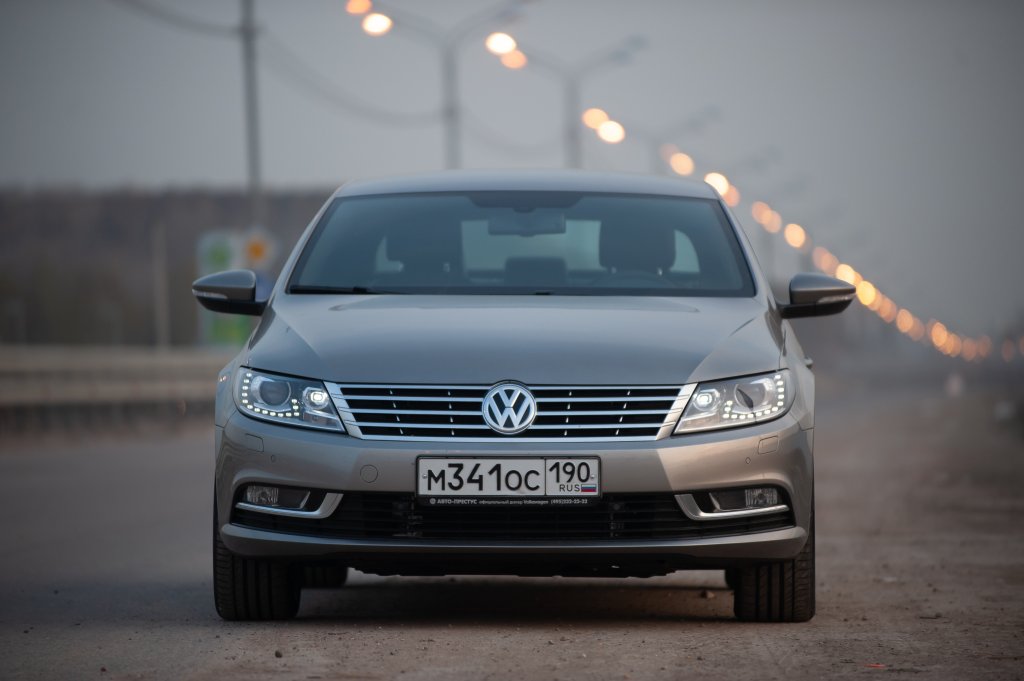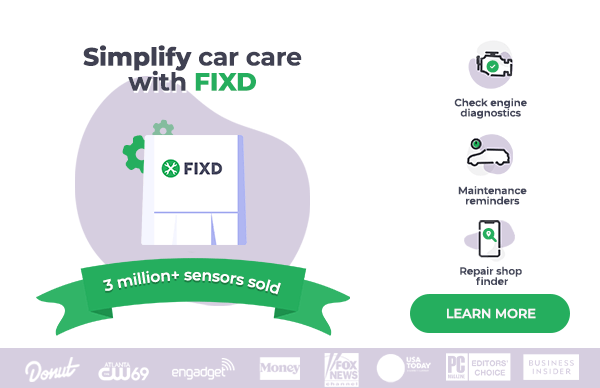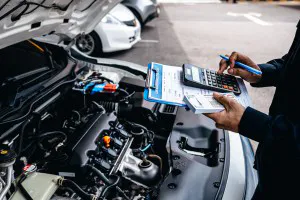Based on the pedestrian Passat, the Volkswagen CC took a page from Mercedes by creating a “four-door coupe”. CC means Comfort Coupe as it has the convenience of 4 doors, but the rakish good looks of a coupe. Longer, wider, and shorter than a Passat, the CC was a short-lived but sharp-dressed VW.
The Volkswagen CC was a perhaps underappreciated sedan that fell victim to an industry-wide decline in this segment, but that doesn’t diminish its inherent cool factor. Like any vehicle, there are some CCs that are better than others, which is why we’ve analyzed 9 years of FIXD data to determine the best and worst model years of the Volkswagen CC.
Volkswagen CC Engine Reliability Score, Safety Ratings, MPG, Value v.s. Value for the Money, and F.I.R.I.S. – Year by Year
The Volkswagen CC Reliability Score chart below drives our ranking of the best and worst model years. It displays an objective measure of reliability based on data collected from thousands of FIXD devices installed in customer CCs.
A theme found with this data is that the first model year of a new generation tends to struggle with reliability as the manufacturer irons out production kinks. The Volkswagen CC only has a single generation that began in 2009, a year with terrible reliability as seen in the graph below.
It’s something repeated across the auto industry including with CC competitors like the Honda Accord, Toyota Camry, and Nissan Altima not to mention its close cousin the Volkswagen Passat.
To generate a more well-rounded analysis, we pull in published government safety scores from the National Highway Traffic Safety Administration (NHTSA), fuel efficiency figures per fueleconomy.gov, current market values from Kelley Blue Book (KBB), and annual maintenance costs from RepairPal.
For a subjective perspective on reliability, we also generate a FIXD Internet Review Index Score (F.I.R.I.S.). You can learn more about how this score is calculated below, but it is based on figures gathered from Edmunds, KBB, Cargurus, and Cars.com.
Where applicable, we note frequently encountered Diagnostic Trouble Codes (DTCs) and important safety recalls issued by the NHTSA as well.
We’re aiming to help existing Volkswagen CC owners, and potential buyers, learn about what to watch out for from one model year to the next. On that note, if you’re in the market for a car, take a look at our article on the USA’s most reliable and cheapest to repair cars in the U.S. Don’t get stuck with a lemon, use our data to help you shop.
Engine Reliability Score – Over The Years
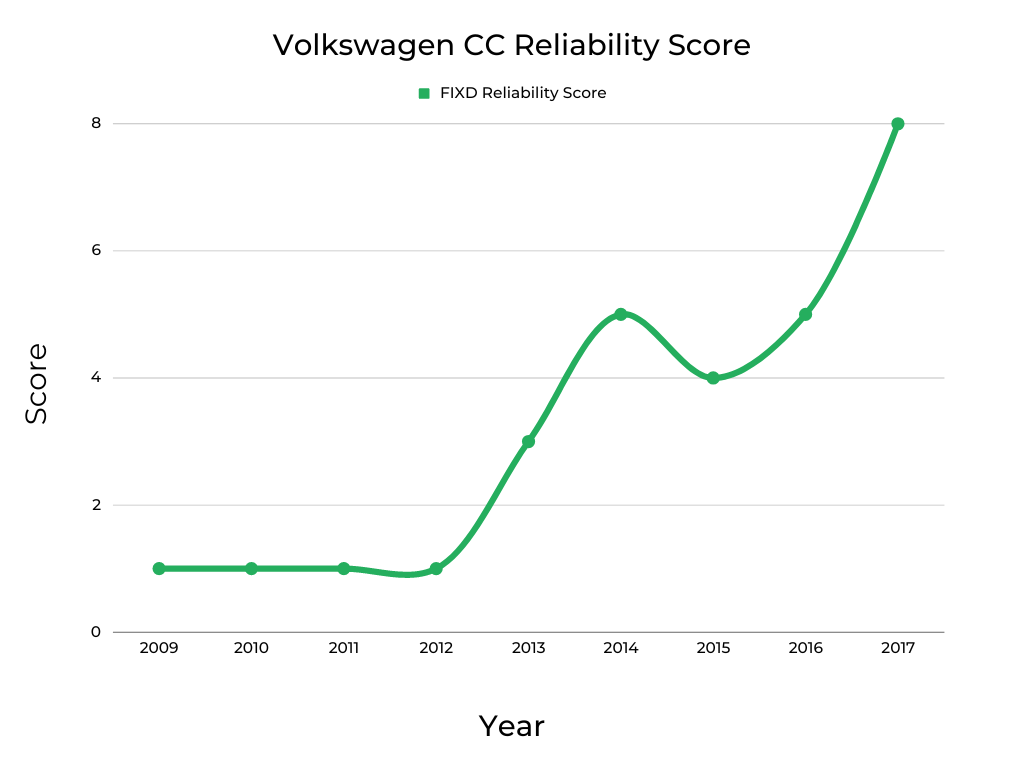
The green line on the Volkswagen CC Reliability Score chart above is based on the total number of CELs that have been recorded by customer-installed FIXD devices for each model year. After tallying them up, we weight this objective score by average mileage and convert it into a 1-10 scale where 10 is the best and 1 is the worst.
As per the norm, newer model years fare better than older ones when it comes to reliability as they tend to have less wear and tear, while the first years of production fare worse. We’ll go deeper into this topic in the relevant model year rankings below.
At the bottom of this page, you can find more details on how we calculate the FIXD Reliability Score. And be sure to check out this list of the most common CELs to expect from a CC as it plays a role in how reliable you can expect your Vee Dub to be.
NHTSA Safety Score – Over The Years

The green line on the Volkswagen CC NHTSA Safety Rating chart above is based on the average safety score, for all trim lines, of a given model year. It is overlaid with the average safety rating of the entire auto industry (gray line) to give a reference point for CC safety. Both sets of figures come from published NHTSA safety data.
Unlike the industry as a whole, the VW CC never improved after it posted a decline in safety when the NHTSA modified its testing protocol in 2011. Four out of five stars is a very respectable score, but while the rest of the industry has shown steady improvement since, it appears the CC was content not to move the needle on safety.
Understanding how a given model year of the Volkswagen CC ranks for safety is important as it plays a main role in keeping insurance premiums down. If you live in one of the states listed below, we can show you the cheapest vehicles to insure in yours.
| What Used Cars Are the Cheapest To Insure In: |
| Ohio |
| North Carolina |
| Michigan |
| Georgia |
| Texas |
| New York |
| Illinois |
| Pennsylvania |
| California |
MPG – Over The Years
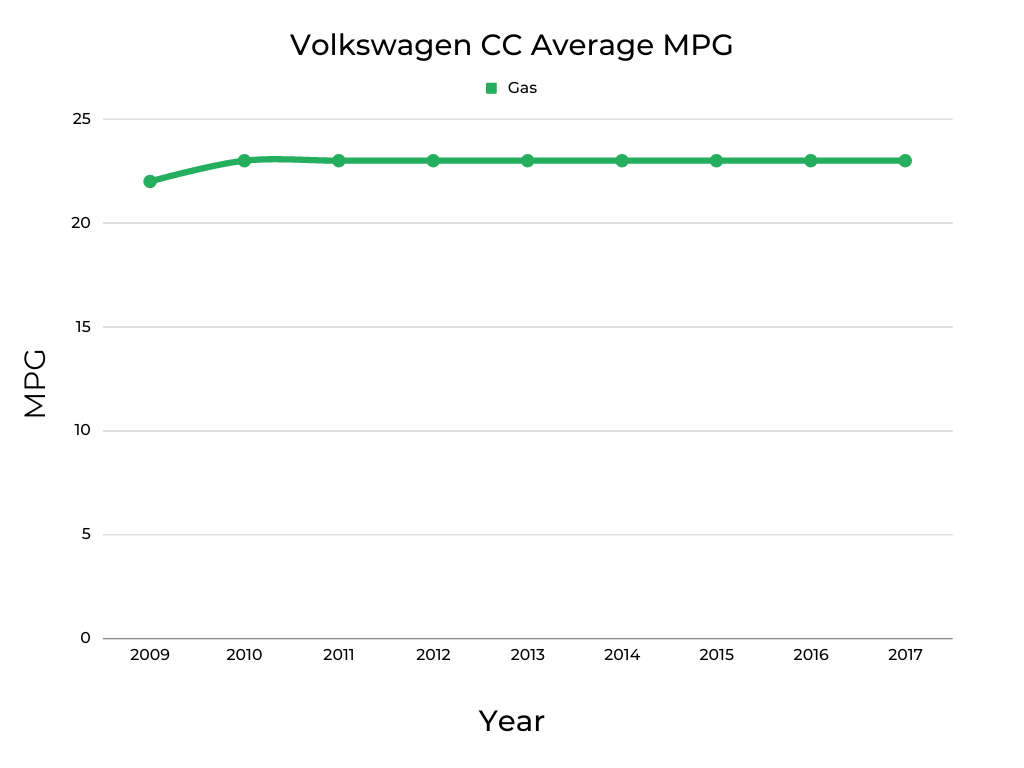
The Volkswagen CC Average MPG chart above comes from data published on fueleconomy.gov. It illustrates average combined fuel economy figures for all CC trim lines of each model year.
Typically, vehicles become increasingly fuel efficient over time as powertrain technologies improve, but as you can see, the CC remains steady at 23 mpg combined for almost its entire lifecycle. That’s because the same 4- and 6-cylinder engines were offered from day one until the CC was discontinued, with no changes in output.
The minor increase seen in 2010 is the result of Volkswagen swapping a traditional 6-speed automatic for its 6-speed dual-clutch “DSG” unit which helped somewhat on the fuel efficiency front.
Current Market Value of All Volkswagen CC Years vs. Value for the Money
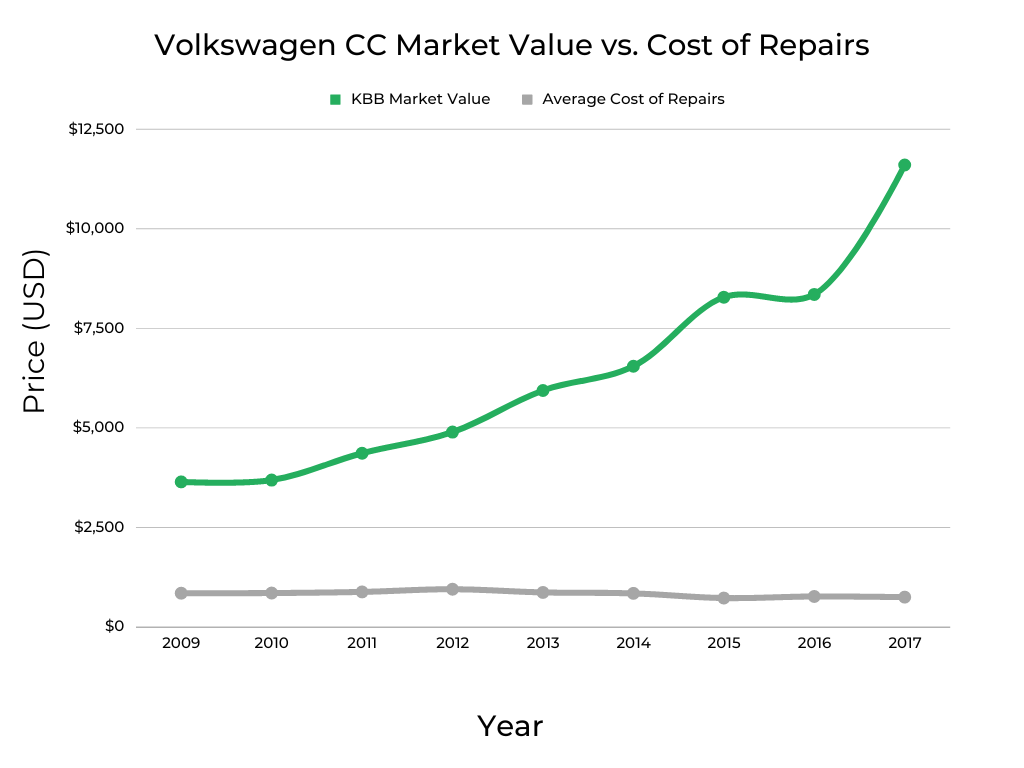
This chart of Volkswagen CC Market Value vs. Cost of Repairs illustrates CC market values from Kelley Blue Book against average annual service costs per RepairPal. It’s one more set of data we use to create a comprehensive analysis of the best and worst model years of VW’s four-door coupe.
As you might expect, market values are higher for later-model CCs that tend to have lower mileage and more sought-after features. The opposite is true of early models like the 2009 through 2012 CCs, none of which crack $5,000 in value. It’s part of the reason these CCs are on our list of models to avoid.
When shopping for a used Volkswagen CC, it’s important to keep in mind that not all vehicles are cared for equally. To protect yourself from lemons, take along a FIXD Sensor on your test drive. FIXD connects to a free app on your smartphone to tell you more about the vehicle you’re checking out, including check engine lights and other hidden issues that the owner or dealership may be attempting to hide. Click here to learn more and get FIXD for only $19.99 (regular price $59)!
F.I.R.I.S. – FIXD Internet Review Index Score– Over the Model Years
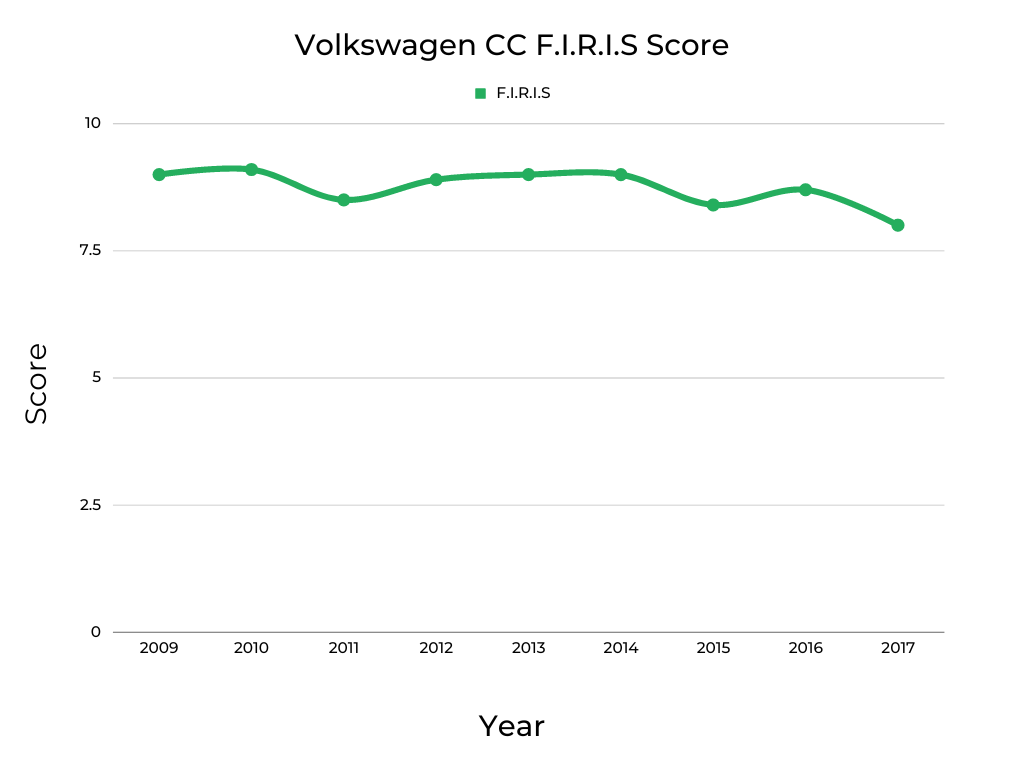
The chart above, Volkswagen CC F.I.R.I.S. Score offers a subjective look at reliability. To create it, we pull together scores from Edmunds, Kelley Blue Book, Cargurus, and Cars.com for each year of CC production. After averaging these figures, we put the F.I.R.I.S. rating on a scale of 1 to 10 where 1 is the worst and 10 is the best.
As the chart shows, earlier CCs fared better in this metric than later models, though the variance is small. This could be due to early models earning extra praise for the dramatic styling and out-of-the-box approach when new. Over time, reviewers may have become less enamored with the CC’s looks and more focused on its faults.
Important Features Timeline
2009 – CC debuts with 4- and 6-cylinder engines, room for 4 passengers, and optional AWD
2010 – 6-speed dual-clutch DSG transmission replaces traditional unit
2011 – V6 powertrain relegated to top-spec VR6 4Motion trim only
2012 – Revised cabin brings analog dash clock and new sustainable wood inlays
2013 – Front and rear exterior design gets updated, cabin revised to seat 5 passengers
2014 – Navigation and VW Car-Net connectivity become lineup standard
2015 – Two new 18” wheel designs offered, “St. Louis” and “Shanghai”
2016 – Apple CarPlay and Android Auto become standard, several advanced driver aids added
2017 – Manual transmission dropped, Sport models updated with ebony and chrome cabin trim
The Best Years of the Volkswagen CC
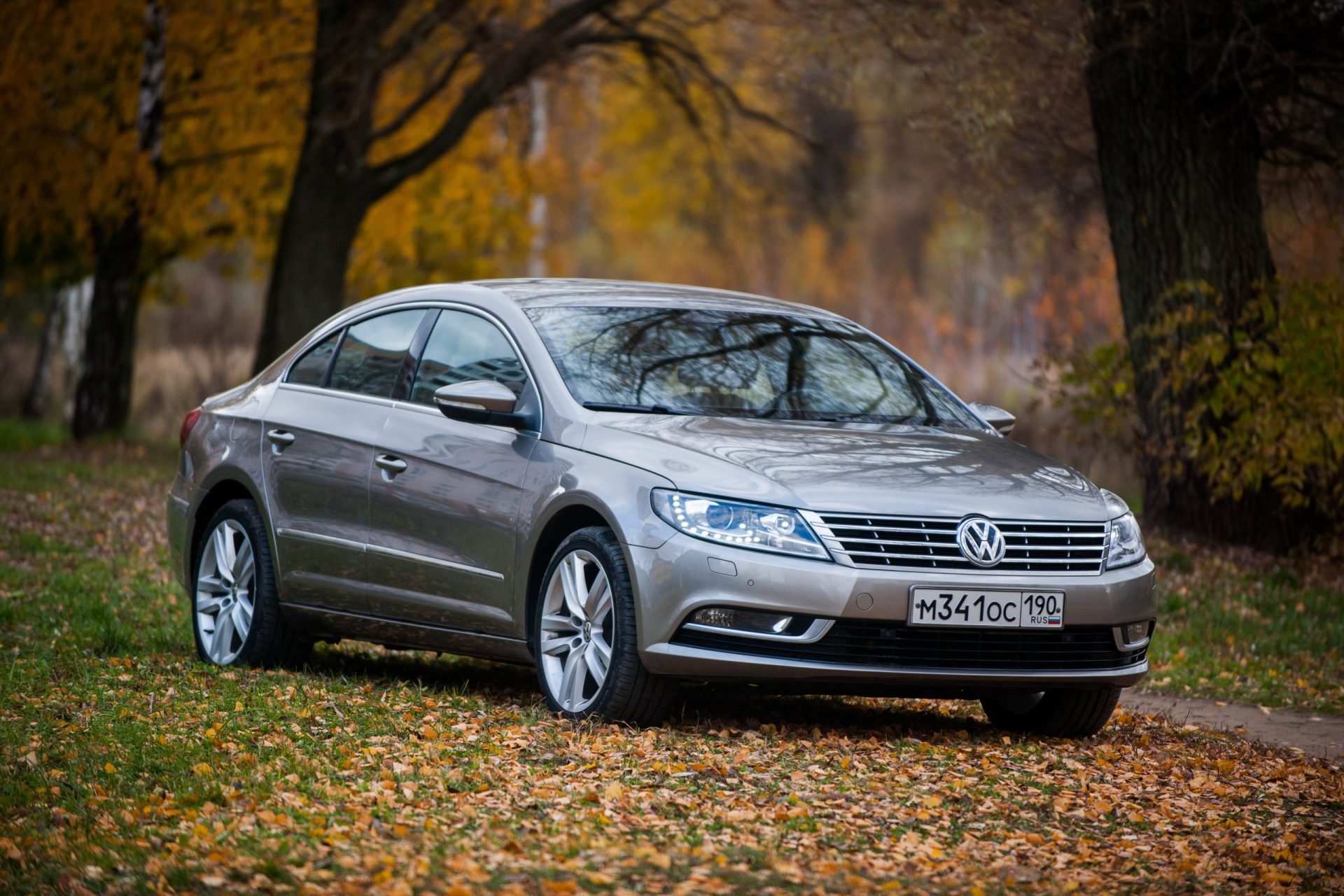
Taking into account FIXD reliability, F.I.R.I.S ratings, fuel efficiency, safety ratings, market values, and annual repair costs, we’ve come up with this list of the best Volkswagen CCs. Pertinent recall information and notes about common DTCs are included as well.
2016-2017 Volkswagen CC
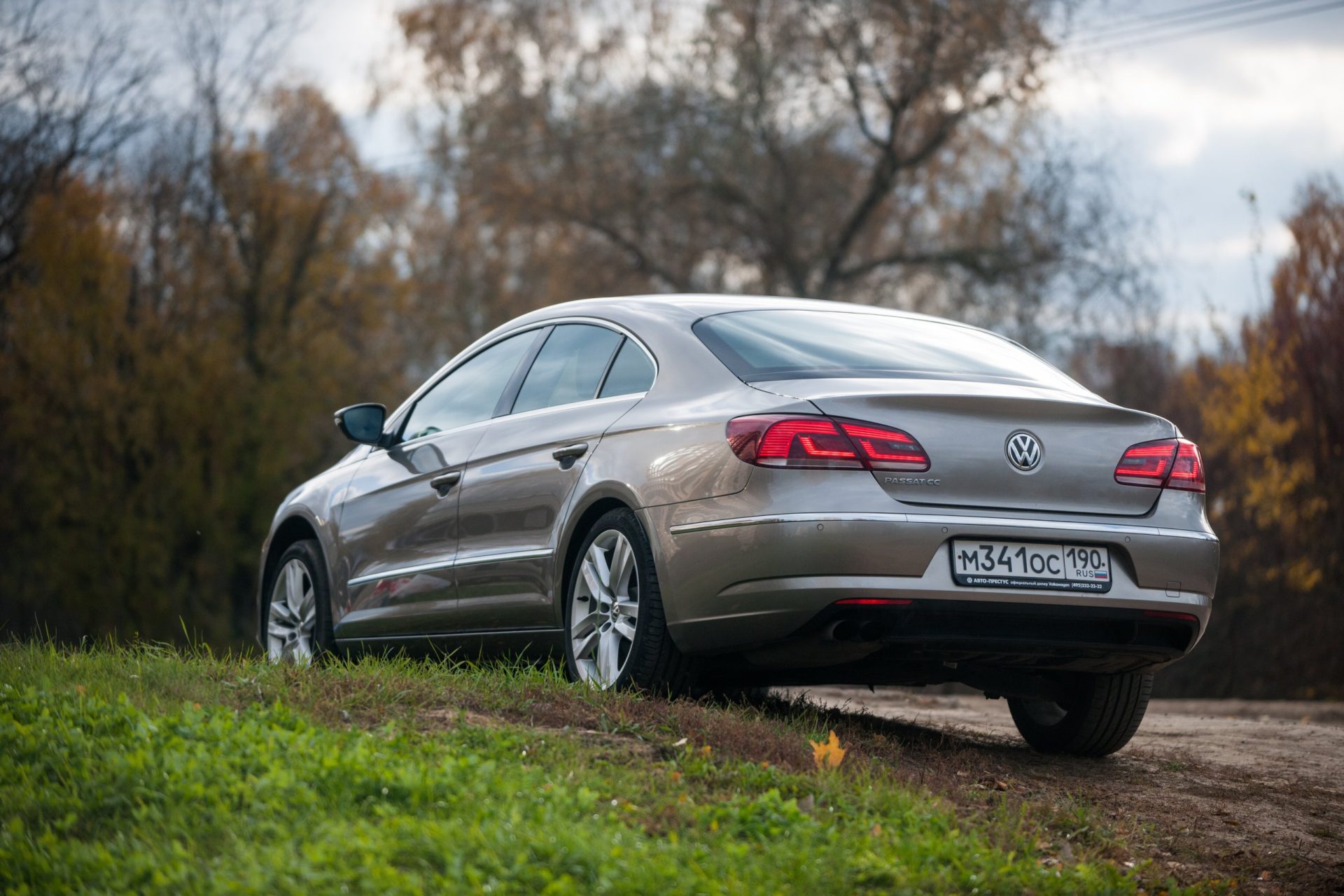
FIXD Reliability Score: 5-8/10
FIXD Internet Review Index Score (F.I.R.I.S.): 8.0-8.7/10
Mileage Est. KBB Value: $8,351-$11,601
Fuel Economy: 23 mpg
RepairPal Average Annual Repairs Total: $750-$767
Safety Rating: 4/5
As production of the Volkswagen CC wrapped up in 2017, reliability posted a notable improvement with the FIXD score moving from 4 out of 10 in 2015 to 8 out of 10 for its final year. It’s possible this strong uptrend is due to VW having had ample time to iron out manufacturing kinks from earlier models, translating into impressive reliability for these later models.
Whatever the case, it goes hand-in-hand with a strong move-up in market values for 2017. Considering these final model year CCs typically have less than 100,000 miles and all-time high FIXD Reliability Scores, the sub-$12,000 price point makes for one heck of a purchase value.
The F.I.R.I.S. rating does start trending down for 2017, which is likely due to the CC having become long-in-the-tooth at this point with no major updates since inception. Typically, vehicles receive a major mid-cycle refresh to keep things, well, fresh. The CC never did, which may have impacted this score, but it is objectively reliable nonetheless.
At 4 out of 5, the average safety score is the same as it ever was for the CC, which is to say very good in the safety department. The same is true of fuel economy, which averages 23 mpg combined every year except 2009. But annual repair costs are a bigger highlight as they come in under the $832 average in both 2016 and 2017.
As for problem areas, a resounding theme across all years of Volkswagen CC production is the P0300 series of DTCs that are triggered by engine misfires. If you encounter one of these codes, you should stop driving immediately as they can cause serious damage if left unchecked. For the 2016 and 2017 models, DTC P0300, P0302, and P0303 are the most commonly encountered.
DTC P0300 arises when there are random, multiple misfires, while DTC P0302 is triggered by a misfire in cylinder 2 specifically. We go into more detail with our DTC P0300 explainer video, but in these two instances, you’re likely on the hook for a new set of ignition coils. Expect to pay between $50 and $175 to have this done at a shop.
DTC P0303, which comes about when there is a cylinder 3 misfire, can also lead to new ignition coils, but in this case, will more likely lead to replacing the spark plugs.
Another pair of common and related DTCs seen on these late-model CCs are P0442 and P0456. These trouble codes are triggered when there is a leak in the Evaporative Emission Control (EVAP) system, which prevents fuel vapors from escaping into the atmosphere.
DTC P0442 is considered a medium-sized leak versus DTC P0456, which is considered a small leak. But in both cases, the problem is usually caused by a loose gas cap.
The 2016 Volkswagen CC had 6 recalls, which is on the high side. One of those recalls, for fuel pump failure, impacted about 281,000 vehicles. Of the 3 recalls for the 2017 CC, an issue with rupturing driver airbag inflators was the most significant as it affected 119,000 vehicles.
Any Volkswagen dealer should repair recall-related work free of charge on a VW up to 15 model years old. You can use this NHTSA VIN tool to determine if your car has any open recalls.
2013-2014 Volkswagen CC
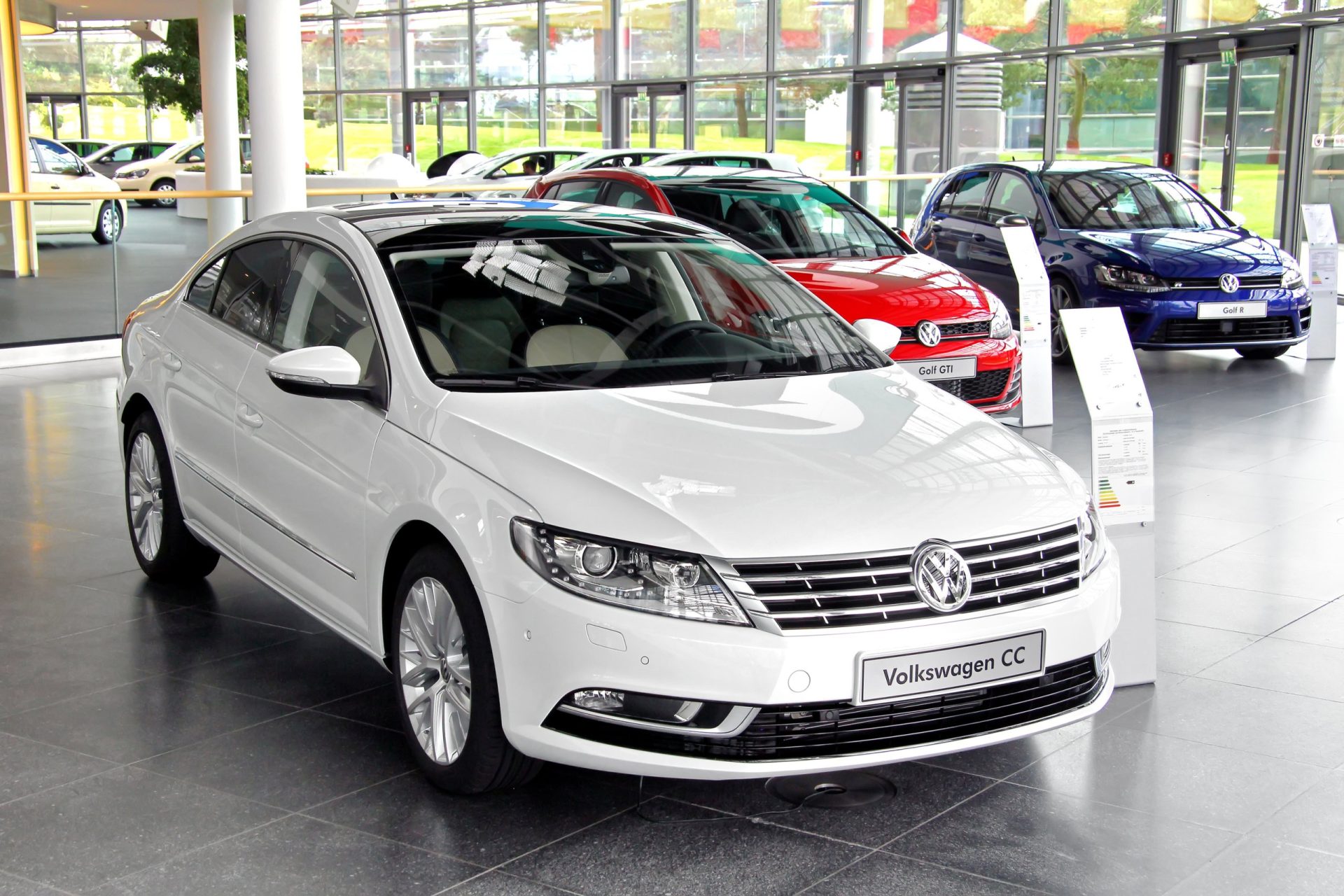
FIXD Reliability Score: 3-5/10
FIXD Internet Review Index Score (F.I.R.I.S.): 9.0/10
Mileage Est. KBB Value: $5,939-$6,547
Fuel Economy: 23 mpg
RepairPal Average Annual Repairs Total: $845-$868
Safety Rating: 4/5
Halfway through CC production, the FIXD Reliability Score jumped 2 points from the bottom of the barrel into 2013 and another 2 points into 2014. So although the scores of 3 and 5, respectively, are on the low side, there’s no denying these 10-year-old CCs are dramatically more reliable than the 2009-2012 models.
The F.I.R.I.S. rating supports this by remaining steady at 9 out of 10, Kelley Blue Book market values move in the right direction, and annual repair costs trend down towards the $832 average. As with the 2016-2017 CCs, fuel economy and safety ratings are steady and solid during this stretch.
It’s more of the same with CELs on these CCs as DTC P0300, P0301, P0303, and P0304 occupy the Most Frequent Offender list. DTC P0300 is triggered by multiple, but random engine misfires, while the other three DTCs pop with misfires in cylinders 1, 3, and 4, respectively.
In all cases, these DTCs are most likely going to require replacing the ignition coils. Having this work done by a mechanic typically costs in the $50 to $175 range. You can learn more with our DTC P0300 explainer video.
The NHTSA issued 5 recalls for the 2013 VW CC, with 3 of those related to airbag problems that affected some 1.3 million vehicles. Of the 5 recalls on the 2014 model, an issue with engine stalls caused by failing fuel pumps impacted about 281,000 vehicles.
The Worst Years of the Volkswagen CC

Working with the same information to determine the best Volkswagen CCs, we’ve compiled a list of model years to avoid. Worse reliability and bigger service bills are the norm with these poor-performing CCs. We are starting from the absolute worst and progressing to the “best of the worst”.
2009-2012 Volkswagen CC
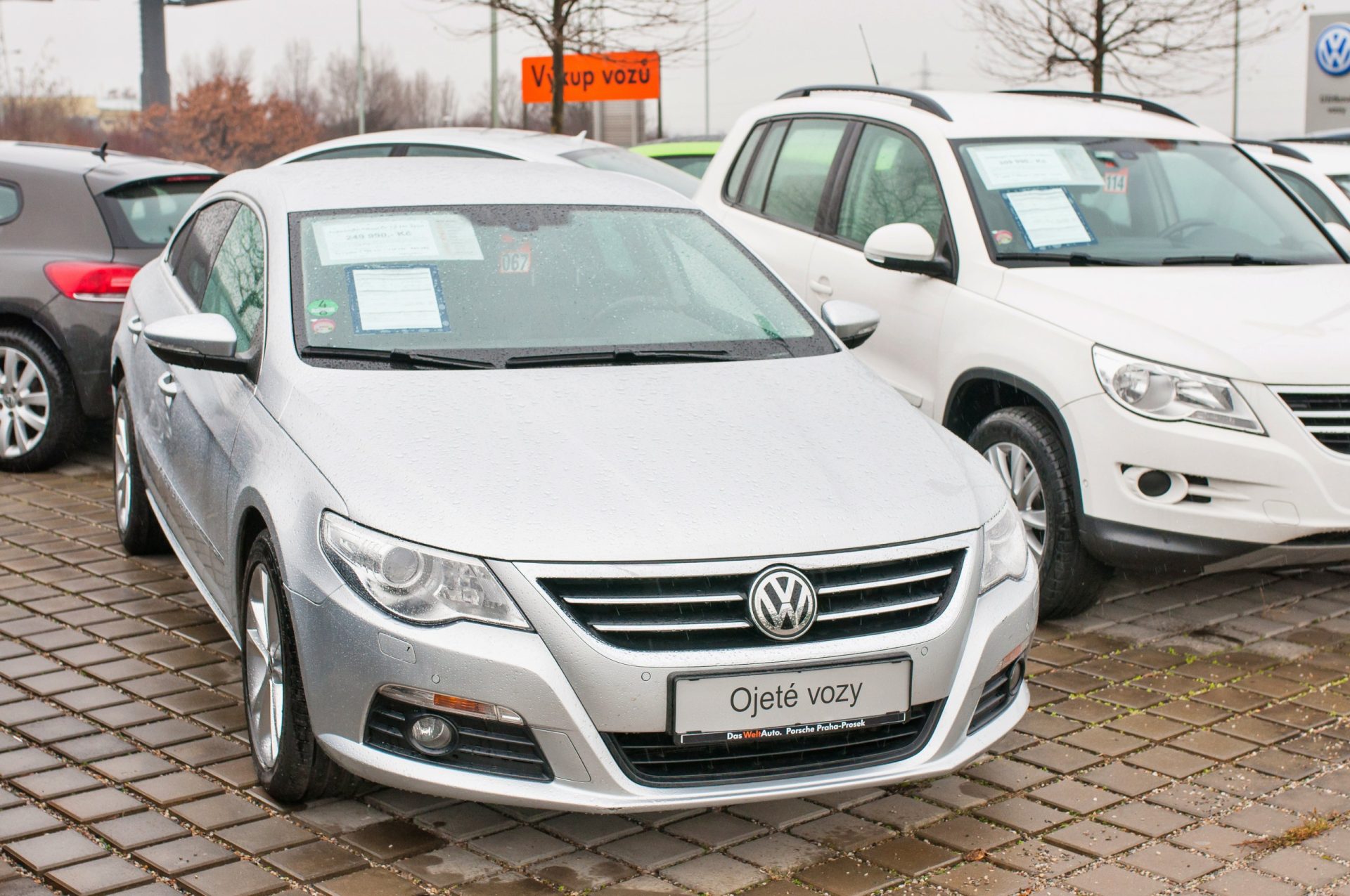
FIXD Reliability Score: 1/10
FIXD Internet Review Index Score (F.I.R.I.S.): 8.5-9.1/10
Mileage Est. KBB Value: $3,644-$4,895
Fuel Economy: 22-23 mpg
RepairPal Average Annual Repairs Total: $849-$949
Safety Rating: 4.0-4.2/5
It’s easy to put the 2009-2012 Volkswagen CC into the “worst of the worst” slot when the FIXD Reliability Scores measure 1 out of 10 every single year. That’s the lowest available score for this metric and an unmistakable indicator that these CCs are objectively unreliable.
In fairness, the first model year of a new generation of any vehicle often struggles on this front as the automaker works through production problems. And VW introduced a new dual-clutch transmission to the CC lineup in 2010. However, nobody wants to see this level of reliability trouble extend across 4 straight model years.
High F.I.R.I.S. ratings reflect the excitement surrounding the launch of the stylish CC. At the time, and now, it was unusual to see this type of design applied to a mainstream sedan. The “four-door coupe” was more common with the likes of Mercedes and Audi.
But, the F.I.R.I.S. decline into 2011 is likely due to reviewers and owners realizing these early CCs weren’t so hot under the flashy sheet metal.
Other dings against these models include market values that stay under $5,000 and annual repair costs that run high, including the highest figure of all years in 2012.
Fuel economy is a bright point, albeit a minor one, as the average moved up 1 mpg in 2010 when the DSG transmission arrived. But the safety score dropped in 2011, along with the rest of the industry, and never recovered.
As for problems, the 2009 CC has the dubious distinction of racking up DTC P2293 to an alarming degree. By alarming, we mean 22 times higher than the average for this trouble code. It’s a big deal because this DTC is triggered by a problem with the high-pressure fuel pump, which costs as much as $1,350 to have repaired.
These models also show a high count of DTC P2015, which is one of the most common causes of a CEL on the Volkswagen CC. It means there is an issue with the intake manifold flap actuator. If DTC P2187 shows up, it means the air-to-fuel mixture is running lean and you may need a new crankcase pressure regulating valve which shouldn’t cost more than $170.
And let’s not forget our friends DTC P0300, P0301, P0302, P0303, and P0304. On these early CCs, DTC P0300 is more likely to cause havoc hand-in-hand with DTC P2187 as it has to do with a malfunctioning crankcase pressure regulating valve.
But the rest of the DTC P0300 Problem Parade shows that the early 4-cylinder CCs tend to have engine misfires in every cylinder – DTC P0301 goes with cylinder 1, DTC P0302 goes with cylinder 2, and so on. Most of the time, this series of trouble codes means you need to replace the ignition coils, which cost between $50 and $175 at a shop.
There were 4 recalls on the 2009 CC including 2 for rupturing airbag inflators that impacted over 1 million vehicles collectively. Of the 4 recalls for the 2010 model, 2 are the same airbag issue as in 2009 plus 1 more for an airbag clock spring failure.
The 2011 CC has the same 4 recalls as the 2010 model for the same issues. As for the 2012 model, the NHTSA issued 6 recalls, one of which was the same fuel pump problem that affected every other model year CC except for 2017.
2015 Volkswagen CC
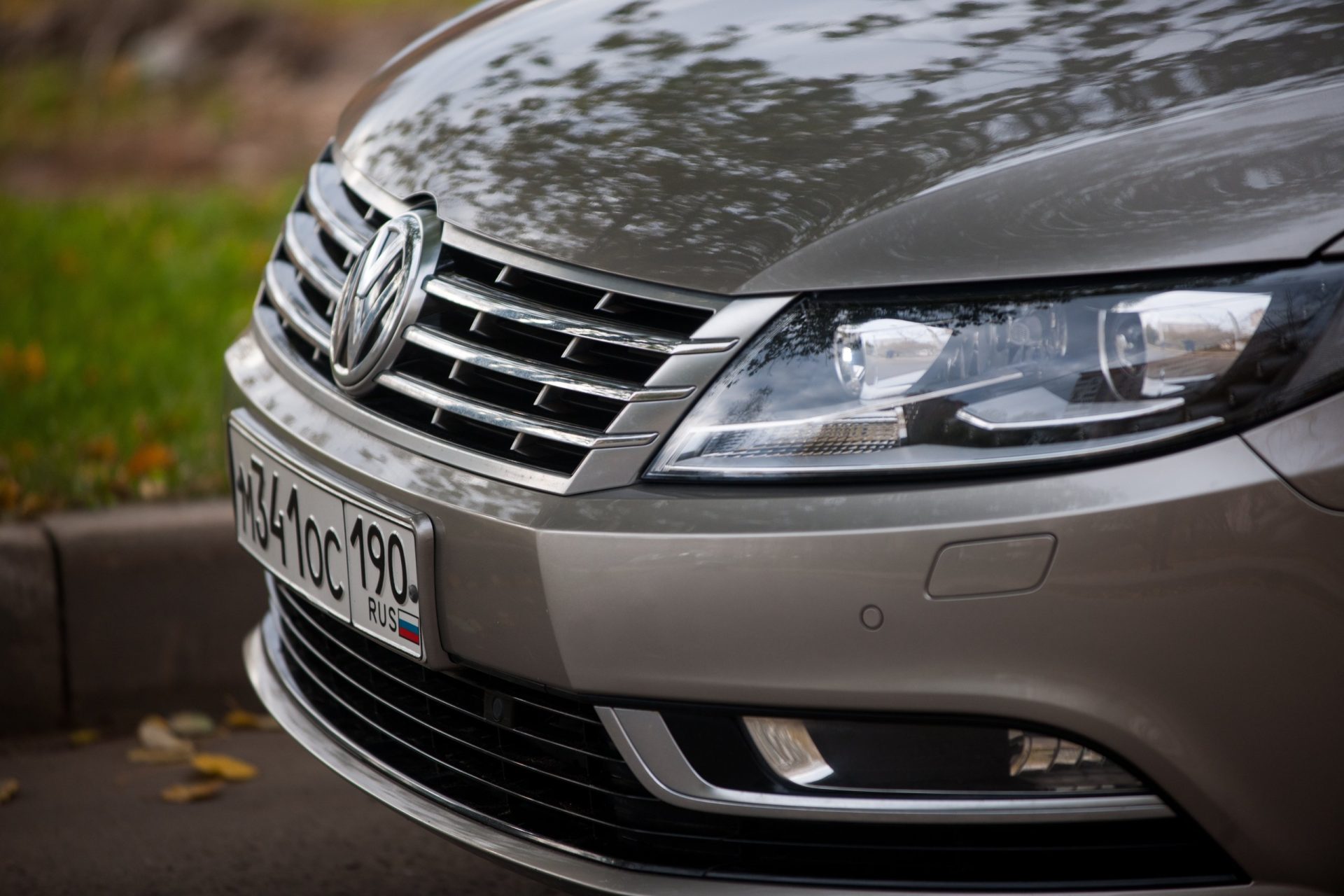
FIXD Reliability Score: 4/10
FIXD Internet Review Index Score (F.I.R.I.S.): 8.4/10
Mileage Est. KBB Value: $8,280
Fuel Economy: 23 mpg
RepairPal Average Annual Repairs Total: $727
Safety Rating: 4/5
The 2015 Volkswagen CC lands on our list of worst model years mainly because the FIXD Reliability Score drops for no obvious reason in the middle of an uptrend for this metric. The F.I.R.I.S. rating also dips here, but market values move up, annual repair costs are below average, and it’s nice and steady on the fuel economy and safety fronts.
So, the 2015 CC isn’t all bad, but considering the models built the year before and two years after are more reliable, it’s not worth your time.
As usual, the DTC department is dominated by the P0300 series, specifically DTC P0302 and P0304 in this case. Both trouble codes are triggered when an engine misfire is detected and in both cases, you’re likely looking at a new set of ignition coils that run between $50 and $175.
DTC P2015, one of the most common reasons behind a CEL on the Volkswagen CC, strikes in 2015 as well. It means there is a problem with the intake manifold flap actuator.
When it comes to recalls, a malfunctioning airbag ECU was the most significant of the 4 recalls issued for the 2015 CC as it affected about 27,000 vehicles.
FAQs
What years of the Volkswagen CC have engine and/or transmission problems?
According to RepairPal, an issue with carbon build-up within the intake system is the most frequently reported engine problem for the Volkswagen CC. This issue is responsible for 2 of the top 5 most common problems per RepairPal’s data and affects all CC model years except 2017.
Looking over the FIXD data gathered from thousands of customer-installed devices, we can see that DTC P0753 – a transmission-related issue – hits the 2009 CC at a far higher rate than any other model year. This code means the PCM has detected an abnormality within the transmission shift solenoid and is a good reminder to stay on top of your automatic transmission service.
What is considered high mileage for a Volkswagen CC?
According to the listings on CarsForSale.com (as of October 18, 2023), there are 538 used Volkswagen CCs on the market. Of those, less than 1% show more than 200,000 miles, about 12% come in between 150,000 and 200,000 miles, and 49% range between 100,000 and 150,000 miles.
Given that, 150,000 miles could be considered high mileage for a Volkswagen CC as the 200,000-mile mark has been achieved by an extremely small percentage of cars.
What other vehicles should I consider?
The Volkswagen CC straddles the mainstream sedan and luxury four-door coupe segments, so there are quite a few alternatives to look at depending on your needs. Obviously, the Volkswagen Passat on which the CC is based would be a good choice if you like VW, but want more interior space.
Other midsize sedans to consider include the Honda Accord, Toyota Camry, Ford Fusion, and Nissan Altima. For a bigger sedan, check out the Dodge Charger and if you want an SUV, but prefer to stay within the VW family, the Volkswagen Tiguan is worth looking at. For those wanting more luxury from their four-door coupe, the Audi A7 and Mercedes-Benz CLS are quite nice.
A Note About Data and Information Sources
This article has many details about Volkswagen CC reliability; here’s what we used for our assumptions and recommendations.
- FIXD Reliability Score & Data: Engine reliability information is captured via the FIXD App.
The FIXD Reliability Score is calculated using the number of DTCs per year, weighted by mileage using 12,000 per year. This is then turned into a scale of 1-10 for easy graphing.
This is an objective score.
- F.I.R.I.S & Data: This data is the result of averaging the score of the Volkswagen CC from Edmunds, KBB, Cargurus, and Cars.com.
Those individual Scores come straight from reviewers and owners of the Volkswagen CC.
This is a subjective score.
From here we translate the answers into the F.I.R.I.S as all the answers are out of 5.
Keep in mind, that owners may think their car is more or less reliable than it actually is.
One potential problem is that people often buy the same make or model they are used to when they go car shopping, just a newer year.
Ford, for instance, has a number of consumer loyalty awards for the Ford F-Series, Ford Mustang, and Ford Expedition.
Car owners may be so loyal to the make or model they currently own that they would have trouble accurately comparing their cars’ reliability to others.
It’s for this reason that we ask car owners a question that is relative to mileage rather than relative to other cars.
Still, be mindful of the accuracy of these F.I.R.I.S, people’s perceptions and unconscious blindspots can skew data.
We suggest looking at both the FIXD Reliability Score and the F.I.R.I.S for this reason.
- KBB Value: Average private-seller valuations as supplied by Kelley Blue Book (KBB), based on a Volkswagen CC with typical mileage for that respective model year.
- Fuel Economy: Mileage-per-gallon estimates according to the EPA MPG on Fueleconomy.gov
- Annual Maintenance/Repair: Upkeep expenses as reported by RepairPal
- Safety Rating: Crash test data collected and reported by NHTSA. We average all ratings for each year to come up with a simplified, average safety score. This makes it easier to look at on a graph.
References
- Volkswagen CC model-specific information. Retrieved October 17, 2023, from https://www.edmunds.com/
- Volkswagen CC model-specific recall information. Retrieved October 17, 2023, from https://www.nhtsa.gov/recalls
- Volkswagen CC model-specific information. Retrieved October 17, 2023, from https://www.auto-brochures.com
- Volkswagen CC model-specific information. Retrieved October 17, 2023, from https://media.vw.com/en-us/

Niel Stender grew up doing replacement work on his old Cherokee and sweet Mitsubishi Starion, which led to a degree in mechanical engineering and a job at Ford as a vehicle dynamics engineer. His writing infuses that automotive background with sales and marketing experience. Writing about cars for close to a decade now, he enjoys digging into some of the more technical mechanical systems under the hood and throughout a vehicle.

